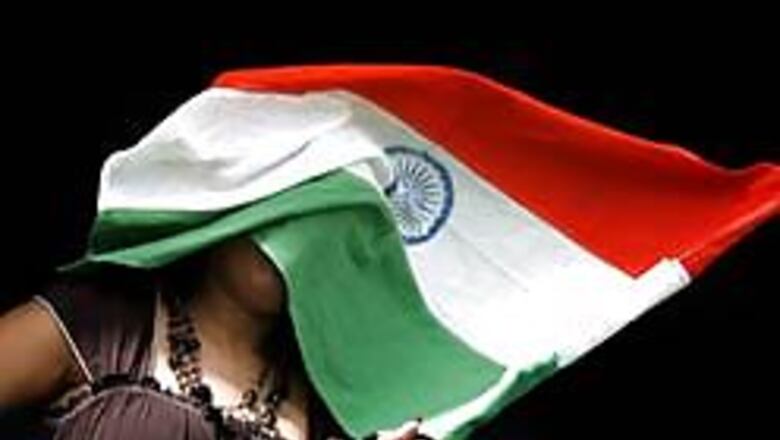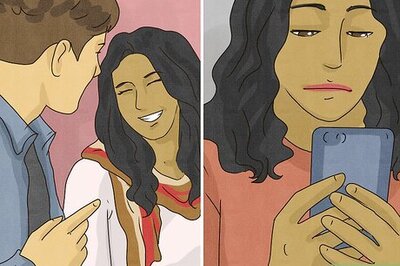
views
The image of a somewhat dazed president, who has lived every bit her image of being harmless, going through the motions of the Republic Day salute is unlikely to be the stuff historic occasions are made of.
The standardised drill of a lifeless ritual reduced what could have been a historic occasion into an event that barely marked the presence of a woman as the head of the state.
The sheer tokenism of it pressed a question: what did this ritual change symbolise? Did this symbolic change in some ways mark the more profound change in the status of Indian woman, a woman who wears a new attitude, a new confidence and a new dress? The Indian Express-CNN-IBN –CSDS State of the Nation Survey interviewed about 4,000 women to get insights into this big question.
The answer has to be ambivalent if we go by women’s reaction to Pratibha Patil. Only two out of every five women had heard her name. The figure would have gone further down if we had not over-sampled urban women in this survey. More women recognise Lata Mangeshkar or Mayawati than Pratibha Patil. When told that a woman was now the President, women did feel good, but not quite ecstatic. Educated women, more in villages than in the metros, reacted more warmly to a woman president. But clearly the first woman president is not, at least not yet, quite a women’s president.
A focus on the present serves to remind us of the challenges that still lie ahead for the Indian women. We quizzed them in detail about several aspects of their life to find out if they could take these decisions on their own or if the decisions were taken by men in their family with or without consulting them. Generally no more than one-third women could take independent decisions about matters that affected them and their family:
-- Women in cities had greater say than their rural counterparts in purchase of household durables, but being working women helped in both settings.
-- When it came to their own education, a majority of women could not take independent decisions; even in the metros the figure barely touched the half way mark.
-- The situation was no better regarding the decision to work: a majority of the highly educated young women said that they could not take this decision of their own.
-- If they do get to work and earn, their say goes up in how their earning is to be used; the higher the earning, the greater the say that woman has in how to spend it.
-- The decision regarding marriage was where the voice of the woman was the weakest. Only one-fifth of the unmarried women felt confident that they could take this decision on their own. In this respect the women in the North East were much better off and those in the north Indian states were the worst off.
-- Interestingly, the one decision in which women report a greater autonomy is about voting, perhaps because this decision was ‘external’ and secret.
PAGE_BREAK
That women could not take the decisions on their own did not mean that men were taking the decisions on their behalf without even consulting them. Usually only less than one-tenth of women reported being completely excluded from decision making. The most frequent response in all these spheres was that while they were not free to take decisions, they were consulted in these vital decisions.
That appears to be an improvement upon what used to happen earlier. In order to check this, we asked all the respondents to compare the decision-making capacity of women in their own family during their childhood to their position now. The responses are more positive and definite here.
Whether they live in nuclear family or in a joint family, our respondents agreed that women had much greater role in decision making now than in their childhood. The proportion was higher among the better off, but even among the poorest the verdict was not different.
Looking at the future, the verdict was even more positive. Nearly three-fourths of our respondents said that in the next generation women were likely to have greater say in decision making in their family. As expected, educated women were more optimistic, but even the non-literate were clearly positive.
This change has its flip side too, as there are new anxieties that affect Indian women. Some of these anxieties have to do with their looks.
PAGE_BREAK
Although very few women place themselves very low on the beauty scale, a significant proportion of young women feel a deficit: from a quarter to a half of young women said they wish they were fairer, taller or slimmer than they were. This anxiety was stronger among the unmarried young women.
Then there was anxiety about being less educated: interestingly, the more educated women felt this lack more acutely. Finally, there was the anxiety about having to choose between career and having children. Generally, younger and more educated women experienced these pressures more than others.
Yet the overall sense that we gather from the responses of these 4,000 women in 160 locations across 20 states of India is that of a new confidence and optimism. Perhaps this is what leads a majority of them to want to be born again as women, should they have a choice in the next birth. This confidence also gives them a new source of support in times of crisis and emotional need.
The urban and working women were less dependent on their husbands or other male relatives for emotional support. They turned more to friends, colleagues and women relatives instead. This new capacity to rediscover or reinvent a women’s community is perhaps the strongest sign of the new confidence of the Indian woman, even if her community does not include Pratibha Devi Singh Patil.
working
women
Young
house
wives
Note: All figures in percent.
Note: All figures in percent. Rest ‘can’t say’.
[The authors are based at the Centre for the Study of Developing Societies. The CSDS team would be happy to respond to any query about this survey at [email protected] ]




















Comments
0 comment